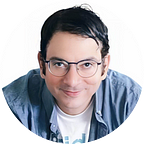Deep Learning (Interview With Leon Bottou)
Léon Bottou received the Diplôme d’Ingénieur de l’École Polytechnique (X84) in 1987, the Magistère de Mathématiques Fondamentales et Appliquées et d’Informatique from École Normale Supérieure in 1988, and a doctorat from Université de Paris-Sud in 1991. His research career took him to AT&T Bell Laboratories, AT&T Labs Research, NEC Labs America and Microsoft. He joined Facebook AI Research in 2015. The long term goal of Léon’s research is to understand how to build human-level intelligence. Although reaching this goal requires conceptual advances that cannot be anticipated at this point, it certainly entails clarifying how to learn and how to reason. Leon Bottou best known contributions are his work on neural networks in the 90s, his work on large scale learning in the 00’s, and possibly his more recent work on causal inference in learning systems. Léon is also known for the DjVu document compression technology.
- When did you start working with deep learning?
1986.
2. What applications do you use deep learning with?
Computer vision, speech recognition, optical character recognition, signal processing, natural language processing, ad placement.
3. Did you notice any improvements when using deep learning compared with other methods you used in the past for the same problems?
Yes. This is why I stuck to it for thirty years.
4. What other applications can deep learning be used with?
Obviously people were successful playing games (backgammon, Tesauro 1989, and now Go).
5. Which applications do you see deep learning is currently used most with?
Probably object recognition in images and videos.
6. Are there any prerequisites or skills one has to master before starting to learn deep learning? Can you give us some examples on those?
Depends what you want to learn. A good understanding of mathematics, linear algebra, machine learning, statistics, and optimization is a plus.
7. What would be the best way to start learning deep learning?
Enrol in a university program on machine learning.
8. What programming languages do you recommend for working with deep learning?
It does not matter as long as you’re able to build what you want to build.
9. What deep learning frameworks do you recommend?
These days we are using Torch a lot. But there are other valid choices.
10. What deep learning books do you recommend?
None.
11. Are there any other resources (i.e. websites, courses, tutorials) you recommend for learning deep learning?
The Torch tutorials are well done.
12. Are there events, conferences, workshops, etc you recommend for deep learning?
NIPS (Neural Information Processing Systems), ICML (International Conference on Machine Learning), and ICLR (International Conference on Learning Representations).
13. Are there any deep learning companies you are interested in?
No.
14. Where do you see deep learning in the coming 10-years?
Certainly in use in the industry. I also hope to see qualitative improvements in both theory and empirical methods.
